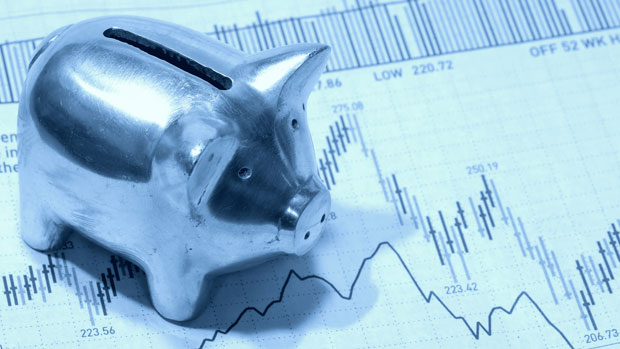How pensions are changing - and how it affects you
From pension freedoms to charge caps and relief cuts, there is a lot to get your head around

A free daily email with the biggest news stories of the day – and the best features from TheWeek.com
You are now subscribed
Your newsletter sign-up was successful
The past year has seen some huge changes to rules governing private pensions, but the government hasn’t finished yet. When the next tax year dawns in April, there will be even more new rules to get your head around.
What happened last year?
Last April, new "pension freedoms" came into force allowing anyone over 55 full access to their pension savings. Once you reach this age, you can now access your entire pension fund and do what you like with it, including cashing it in.
The Week
Escape your echo chamber. Get the facts behind the news, plus analysis from multiple perspectives.

Sign up for The Week's Free Newsletters
From our morning news briefing to a weekly Good News Newsletter, get the best of The Week delivered directly to your inbox.
From our morning news briefing to a weekly Good News Newsletter, get the best of The Week delivered directly to your inbox.
At the same time, the government removed all of the rules that effectively might have forced you to convert your savings into a regular income through an annuity. Given that annuity rates have plummeted and left people with pitiful retirement incomes, many saw this as great news.
Fantastic. What’s the catch?
Despite concerns that people would withdraw all their cash and blow it on fast cars and holidays, most have been pretty sensible. That could also be down to the fact that if you try to withdraw your entire retirement savings, you’ll find you are left with a lot less money than your last pension statement said you had.
There are two reasons for this: firstly, you can withdraw 25 per cent of your pension savings tax-free, the rest will be subject to tax at your income tax rate, so you could lose 40 per cent of your savings when you withdraw them; secondly, pension companies don't want to lose your money. As a result, some have been charging excessive exit fees. This has come to the attention of the Treasury and Chancellor George Osborne has said action will be taken.
A free daily email with the biggest news stories of the day – and the best features from TheWeek.com
"The pension freedoms we've introduced have been widely welcomed, but we know that nearly 700,000 people who are eligible face some sort of early exit charge," Osborne told the House of Commons. "The government isn't prepared to stand by and see people either ripped off or blocked from accessing their own money by excessive charges."
The Treasury has asked the Financial Conduct Authority to introduce and police a cap on excessive exit charges from pension schemes.
What about my existing annuity?
The new pension freedoms haven't gone down very well with those who had already had to swap their sizeable pension savings for an annuity paying them a pitiful annual income.
To address this, the Treasury has announced that from April 2017, people will be able to sell their annuities on a secondary market. Rules will be relaxed so that an insurer will be able to purchase your annuity income stream for a lump sum, with the price determined by the level of income and how long they think you'll live.
"For most people, sticking with an annuity is the right thing to do, but there will be some who would welcome being able to draw on that money as they choose – the same freedom we gave to people approaching retirement," says Harriett Baldwin, the Economic Secretary to the Treasury.
The market will take some time to get going and will see discounts applied to the assumed value of your income, so those who got a bad deal the first time around might lose out twice. Of course, some customers will be willing to take a hit to replace a tiny income stream with a useful cash lump sum.
What about changes to tax relief?
It isn't all good news when it comes to pensions. From April, the amount of tax relief you can claim on money you pay into your pension pot is being reduced.
Under the Lifetime Allowance, the maximum amount on which you can claim tax relief will drop from £1.25m to £1m. This means that if your pension savings rise above £1m, including compound interest, any new money contributed to the fund above that will be subject to a 55 per cent tax rate when it is withdrawn.
If you are a higher earner, you'll also be able to put less money into your pension each year and enjoy tax relief. The annual allowance will gradually be reduced from £40,000 to £10,000 for those people earning between £150,000 and £210,000 a year.
-
 Tourangelle-style pork with prunes recipe
Tourangelle-style pork with prunes recipeThe Week Recommends This traditional, rustic dish is a French classic
-
 The Epstein files: glimpses of a deeply disturbing world
The Epstein files: glimpses of a deeply disturbing worldIn the Spotlight Trove of released documents paint a picture of depravity and privilege in which men hold the cards, and women are powerless or peripheral
-
 Jeff Bezos: cutting the legs off The Washington Post
Jeff Bezos: cutting the legs off The Washington PostIn the Spotlight A stalwart of American journalism is a shadow of itself after swingeing cuts by its billionaire owner